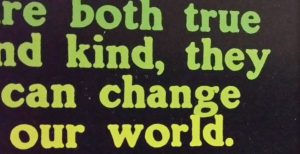Recently I came across an article claiming that capitalism has failed its social contract. Even thought the article was from five or so years ago, it threw me for a loop. Capitalism has not failed its social contract. It is doing what it was designed to do — make money for a limited number of people. Capitalism never promised food, homes, or health care for all. It is an economic ideology to increase profits for those that control production. It was never designed to distribute wealth to those that labor, just increase the wealth of the masters. And given the chasm between the 1% and the rest of us, capitalism is working as designed.
Granted a middle class has risen while capitalism has increased its hold on society. While some members of this middle class have increased their wealth and joined the upper classes in terms of wealth, many are realizing how quick a fall from grace could happen with an accident or medical emergency. It doesn’t take much in our winner take all world for a non 1%-er’s personal capital to be wiped out. Hence the idea that capitalism has failed its social contract. But that is not failure of capitalism, it’s a failure of us by placing other social ideals onto capitalism and expecting them to mesh well.
American has been lucky over the last 100 years or so. We’ve had leaders that implemented social programs that have given us a safety net. While this net has expanded and contracted over the years, it gives people a sense of security. With this security, people have been able to collect material wealth and the growth of the middle class happened.
But when this safety net is not really a part of capitalism, its degrees of socialism (which is a bad word in American society). But now that members of the 1% class want to take away health care, meals on wheels, worker protections, public education, and privatize social security, a good majority of the 99% are waking up to realize how fragile our meshing of capitalism and socialism really is.
Frustration and fear have fueled a growing movement amongst the middle class. Many have become activists for the first time in their life. The fear of losing everything is very motivating. People want to hold on to their McMansion house, multiple cars, and a tv in every room. Granted not everyone who is middle class lives that way. Some are very content with a one bedroom home and a reliable car. But in our society, our material wealth is usually a reflection of our success. And many people get trapped in the idea of keeping up the Jones as the saying goes. But does it need to be that way? It’s not like you can take it with you when you die.
In our modern society, we are a culture where excess has been the expectation. Many of our celebrities are infamous not because of what they have done but because of the opulent lifestyle they lead. But this just sets up people for feeling left out because they can’t have what they see on TV. When our government tries to take away life sustaining benefits, the feeling becomes reality and people get scared and angry. There are many in this great land that are not so lucky to live in a McMansion. These are the people the middle class has kind of ignored up to now — now that they are close to joining them. The less fortunate class of the working poor, the disabled, etc have been fighting to hold onto their to social benefits for years. The same social benefits that have allowed the middle class to grow.
No matter your social class, there is the general expectation that we can have it all. But this has just set us up to suffer. We work hard for things we don’t need and a year later put in storage. Our society does a mediocre job of meshing capitalism and socialism because well respected tenants of capitalism like free trade and globalisation were never meant to work with socialism. We’ve come to value the opulent lifestyle when we can’t even feed all the children in our country. What would a US citizen’s environmental footprint be if we valued smaller homes, better fuel economy vehicles, not having the latest gadget, fresh produce for all, health care for all, free day care or programs for kids, etc? If we didn’t rip into the Earth to get more materials for the latest gadgets and fuel for various needs, but instead we could use those resources to move soil and planted more fresh food closer to low income communities. What would the fallout be for their health with better food? What if we valued volunteering for senior citizen programs or kids after school programs instead of shopping for the latest shoes in style? What if we slowed down our consumption, didn’t chase the latest trend, and re-think what it means to have it all? This idea of having it all the American way has spread to other countries around the world which just adds to the problem.
Our society is at a crossroads. We need to change our social contract. We’ve made many strides in this direction for many years, but we still hold on to the idea that capitalism will save us all when it trickles down. But it won’t. We need to let human compassion and empathy guide our government. The Constitution mentions “promote the general Welfare”. It doesn’t mention increasing income, just taxing it. If we use those four words in the Constitution as our guide to provide benefits for increasing our population’s welfare by providing healthcare for all, free public school education at all levels, jobs programs for skills training, kids programs to help in need and troubled children, etc, we can make America great again. By caring for us, we strengthen our nation and lead by example on the global stage. We give each person the ability to pursue liberty in a way that makes them happy while having a safe place to spring forward from whether volunteering, starting a business, or following the latest trend. Promoting the general welfare will not be cheap both in monetary funds or human patience. We can continue on the path we are on or change it. Either way, we will end up living a simpler lifestyle. One path we have control and can make the transition a comfortable one, the other not so much.


